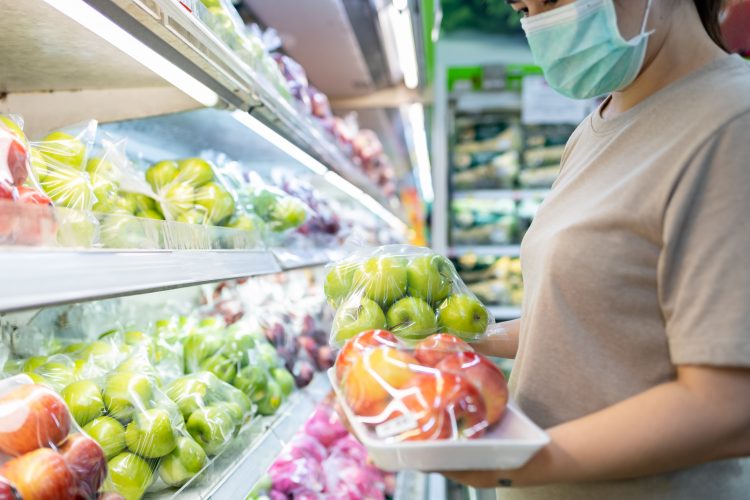Championing ethical and sustainable values in hospitality beyond COVID-19
- Like
- Digg
- Del
- Tumblr
- VKontakte
- Buffer
- Love This
- Odnoklassniki
- Meneame
- Blogger
- Amazon
- Yahoo Mail
- Gmail
- AOL
- Newsvine
- HackerNews
- Evernote
- MySpace
- Mail.ru
- Viadeo
- Line
- Comments
- Yummly
- SMS
- Viber
- Telegram
- Subscribe
- Skype
- Facebook Messenger
- Kakao
- LiveJournal
- Yammer
- Edgar
- Fintel
- Mix
- Instapaper
- Copy Link
Posted: 22 October 2020 | Jon Davies | No comments yet
Food businesses must continue to support fundamental ethical principles around planetary health and environmental welfare as they recover from the economic impact of the pandemic, writes Jon Davies, Managing Director of Levy UK + Ireland.


Following a challenging few months in the events hospitality sector, an operational return is beginning to feel as if it cannot come soon enough for venues. While the road to reopening is long, with operators only doing so once it is safe, the hope is that some events may return in a limited capacity early in the new year.
As we push towards recovery, it is important that we do not lose sight of the values that underpin our organisations and drive our operational success in the excitement of reopening. Pre-crisis, our sector was undoubtedly strong – not just in terms of economic performance and growth, but also in terms of clarity around a range of core values from personal and planetary health, to ethical and environmental welfare, as well as broader food safety and sustainability issues. The pandemic is our immediate crisis, and one eye will understandably be on the short-term return. But businesses in this space must remain mindful of the longer-term path ahead and focused on where collectively, as an industry, we would like to see ourselves in future.
Supplying sustainability
Ethical and sustainable principles are both valuable and viable causes for food businesses to uphold. We recognise Levy’s responsibility to continue reducing our carbon impact. By decreasing food waste, lowering reliance on animal protein across menus, promoting plant-forward diets and championing British seasonal produce, we believe we have a clear vision on how best to achieve that goal.
An important first step here for any food business is to reassess both the manufacturing and supply chains that deliver produce, and the kitchens and central production units (CPU) that prepare and deploy food items – all with a view to building a more cohesive food strategy that underpins the whole business.
By taking a greater stake in food production, providers can ensure they are building menus around products that adhere to a sustained set of ethical principles – such as those outlined above. For those of us serving multiple venues, the logistics of delivering a more streamlined and consolidated range of products across our estate would bring both a cost-saving benefit and also increase the ability to leverage our supply chain for good. Working more closely with manufacturers and suppliers means that firms can help to drive up food safety and welfare standards, while ensuring a fair price point for everyone.
Promoting positive habits
Within venues, it is also important to encourage positive behaviours that are driven by the broader commitment to ethical values. Habits have undoubtedly shifted towards a greater awareness of how we eat and engage with food during this crisis, although these could quickly move in the another direction post-pandemic if operators are not careful.
Misconceptions among operators and guests may also risk driving unsustainable practices, such as an increased reliance on single-use plastics that some deem to be a ‘safer’ option. While understandable in the short term, we cannot let a disposable culture reassert itself as a new long-term normal. Takeaway-style service is not the only way to deliver a safe and hygienic experience; moreover, customers do not want to compromise on the quality or excitement, and will not part with their hard-earned cash for an experience that is perceived to be overly sterile.


Hospitality providers should also aim to innovate further, looking to deliver smaller menus built around more seasonal produce, facilitated by local suppliers and utilising more of the animal or vegetable to reduce waste.
Protecting lives and livelihoods
The other key area of focus for any food business is, of course, its people. It has become abundantly clear, as a result of this crisis, that our industry needs a more sustainable model for the redeployment of variable workforces moving forward. Businesses today will be preparing for a future with smaller fixed teams and larger flexible variable workforces. Roles which exist in abundance today – such as those at Covid testing centres – may not exist in 12 months’ time. There is now an opportunity for a genuinely revolutionary variable model that combines the versatility of a gig economy labour structure with the security of redeployment options across wider business portfolios and a commitment to the living wage. A system that works for people both in terms of flexibility and welfare is one that businesses and their people can be proud of.
It would be misleading to suggest that early on in this crisis businesses were focusing day-to-day efforts on sustainability. Our sector has been caught up in truly unprecedented circumstances; and with sudden uncertainty on such a global scale, the immediate concern for many will have been to protect those businesses which serve and support millions of people each year.
However, in the face of ongoing difficulty and disruption, it is vital that we revert to and reaffirm our commitments rather than compromise on them. As food businesses, we must not return to operations having reneged on the core values and principles we held before the pandemic. To do so would be a betrayal of our partners, our people, our customers and ourselves – and the long-term damage caused by that loss of trust could well be irreparable.
About the author
Jon Davies is Managing Director of Levy UK + Ireland, a leading sports and leisure catering firm and partner. The company has worked for some of the UK’s leading stadium, conference and arena venues.
Related topics
COVID-19, Ingredients, Plant based, Recruitment & workforce, retail, Supermarket, Supply chain, Sustainability, Trade & Economy









